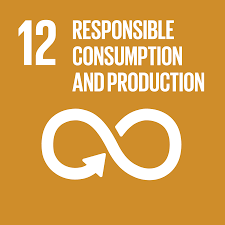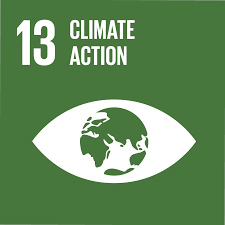Will a Plant-based Diet cut it?
- Sandeepa

- Jun 9, 2020
- 5 min read
Updated: Jun 17, 2020
This article is focused on these Sustainable Development Goals:
During this COVID-19 pandemic, many are thinking of working with other organisations to provide clean healthcare equipment or ensure health security, however, this pandemic has revealed greater global issues; one of them being climate change. The skies and oceans are clearing up so why not make varied and resilient changes to our lifestyle? Many individuals think that switching off lights and taking shorter showers are the only aspects of their lives in which they can contribute to reducing the impacts of their carbon footprint but have you ever thought of your diet?
My proposed solution is to make varied changes to our diet so that we can reduce the impacts of climate change by focusing on our individual lifestyle rather than the environment. One may not realise it but what’s on our plate every single day contributes to the amount of greenhouse gases emitted each day. Therefore, by making small changes to our own diets, not only do we reduce our carbon footprint, we consume responsibly.
Of course I’m not telling you to completely cut off your meat consumption or stop eating eggs but a huge percentage of greenhouse gas production comes from the mass production of meat. If we do take the individual initiative to reduce our meat consumption on a weekly basis, we can reduce our carbon footprint and stop consuming products that contribute to greenhouse gas production. Being able to do this can have an enormous impact on our carbon footprint. Reducing your meat intake implies that you don’t consume products that support the culture of irresponsible consumption. For example, eating three hamburgers a week is truly unnecessary. Instead, make it a weekly treat for your family to have a night where it is okay to consume these products. Another way is to instigate specific days where you go meatless. This way, you challenge yourself to reduce your meat consumption for all the good reasons with a plus of eating extra healthy and green.
Not only are you benefitting from this solution, everyone around you is too. Climate change is a phenomenon that impacts everyone around you in several different forms hence, doing something as small as changing your own lifestyle not only reduces your consumption of meat that contributes to the greenhouse gases, it could also lead to the development of an equitable food system by reducing the amount of land used to feed humans on this planet. We live on a planet with limited resources hence, daily decisions we make do contribute to the drastic climate-related changes the Earth is facing today.
A study conducted by the University of Oxford indicated that the meat-rich diets produced double the CO2 emissions of vegetarian diets hence, going meatless for a day or more during a week has a clear contribution to reducing your carbon footprint (Fox, Katrina). Luckily, the average growth rate of alternatives to meat and dairy has increased by 8.1% in 2017 (Fox, Katrina). This reveals how individuals have been engaging in decisions concerning not just themselves, but others as well. The first quote presented by the United Nations concerning SDG 12: Responsible Consumption and Production is that each year, an estimated one third of all food produced end up rotting in the bins of consumers and retailers (Sustainable Consumption). This reveals the issues of irresponsible consumption from our part and as a result of this, we aren’t able to feed one in ten people in the world today (How Many People). Gearing ourselves towards responsible consumption of products that are produced through the use of the environment and its resources is truly important if we want to eliminate the impacts of climate change.
With a focus on SDG 13: Climate Action, our food systems account for about one quarter of all manmade greenhouse gases (Moskin, Julia). This includes all the harvesting of plants and animals as well as the processing, packaging and shipping of these products to markets all around the world (Moskin, Julia). This implies that if we do make varied changes to our diet, we can reduce our consumption of meat products that are essentially making up so much of the greenhouse gases each year. Furthermore, if we are able to cut down our meat consumption, we can get rid of the environmental burden for the future generation. We should all understand that though the climate has been improving as a result of this pandemic, this won’t last long. We need to start changing our ways of living in order to contribute to a greener environment and a sustainable future for ourselves.
According to the UN’s Intergovernmental Panel on Climate Change (IPCC), if we use land more effectively, it has the ability to store more of the carbon that is emitted by us (Herrero, Jess). Scientists also say that more people can be fed using less land if people reduced their meat consumption. In the context of SDG 15: Life on Land, this is a positive change in reducing the harmful activity that is impacting our biodiversity today (Herrero, Jess). The need for land in order to harvest crops and animals has resulted in deforestation. The planet that we are destroying right now in order for us to consume on a day-to-day basis is dying so it is extremely important that we all adapt to sustainable lifestyle changes so that we do our part.
Priorities during this COVID-19 pandemic are different for everyone, however, something we’ve all realised is how much time we have to ourselves so why not take advantage of that? Find simple ways to cut out your consumption of meat and make it a habit to consume products that don’t have a huge carbon footprint. With the connections seen above to the UN Sustainable Development Goals 12, 13 and 15, this reveals how interconnected a personal habit can be with many prominent issues in our world. Remember, change starts from you.
External Resources
Click here to find out more about how much carbon emissions one kilo of a specific food produces.
Calculate your Carbon Footprint here.
An interactive by the New York Times about the connection between food and climate change.
Read more about the need to reshape our food system and habits at the Guardian.
Works Cited
“Climate Change – United Nations Sustainable Development.” United Nations, United Nations, www.un.org/sustainabledevelopment/climate-change/.
“Forests, Desertification and Biodiversity – United Nations Sustainable Development.” United Nations, United Nations, www.un.org/sustainabledevelopment/biodiversity/.
Fox, Katrina. “Here's Why You Should Turn Your Business Vegan In 2018.” Forbes, Forbes Magazine, 2 Jan. 2018, www.forbes.com/sites/katrinafox/2017/12/27/heres-why-you-should-turn-your-business-vegan-in-2018/#322afe9b2144.
Herrero, Jess Fanzo and Mario. “What We Eat Matters: to Change Climate Crisis, We Need to Reshape the Food System | Jess Fanzo and Mario Herrero.” The Guardian, Guardian News and Media, 8 Oct. 2019, www.theguardian.com/commentisfree/2019/oct/08/climate-change-food-global-heating-livestock.
Hills, Thomas T. “Climate Change and Diet.” Psychology Today, Sussex Publishers, 11 Oct. 2018, www.psychologytoday.com/us/blog/statistical-life/201810/climate-change-and-diet#annotations:tChmaC_VEem8d1_UPCucQA.
“How Many People Are Hungry in the World?” World Hunger News, 21 Apr. 2018, www.worldhunger.org/hunger-quiz/how-many-people-are-hungry-in-the-world/#:~:text=The United Nations Food and,, live in developing countries.).
Moskin, Julia, et al. “Your Questions About Food and Climate Change, Answered.” The New York Times, The New York Times, 30 Apr. 2019, www.nytimes.com/interactive/2019/04/30/dining/climate-change-food-eating-habits.html
Oniang'o, Ruth Khasaya. “Why What We Eat Is Crucial to the Climate Change Question | Ruth Khasaya Oniang'o.” The Guardian, Guardian News and Media, 5 Mar. 2018, www.theguardian.com/environment/2018/mar/05/why-what-we-eat-is-crucial-to-the-climate-change-question.
“Sustainable Consumption and Production – United Nations Sustainable Development.” United Nations, United Nations, www.un.org/sustainabledevelopment/sustainable-consumption-production/.







Comments